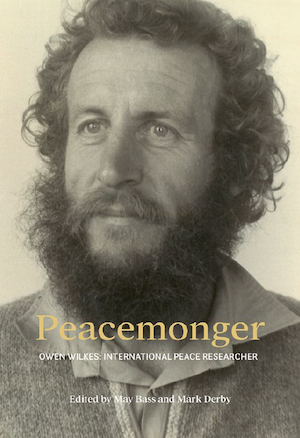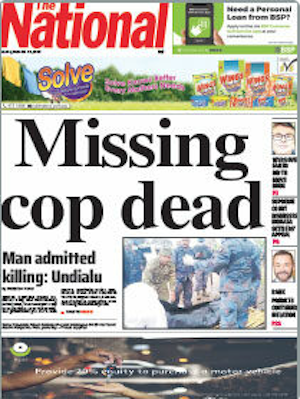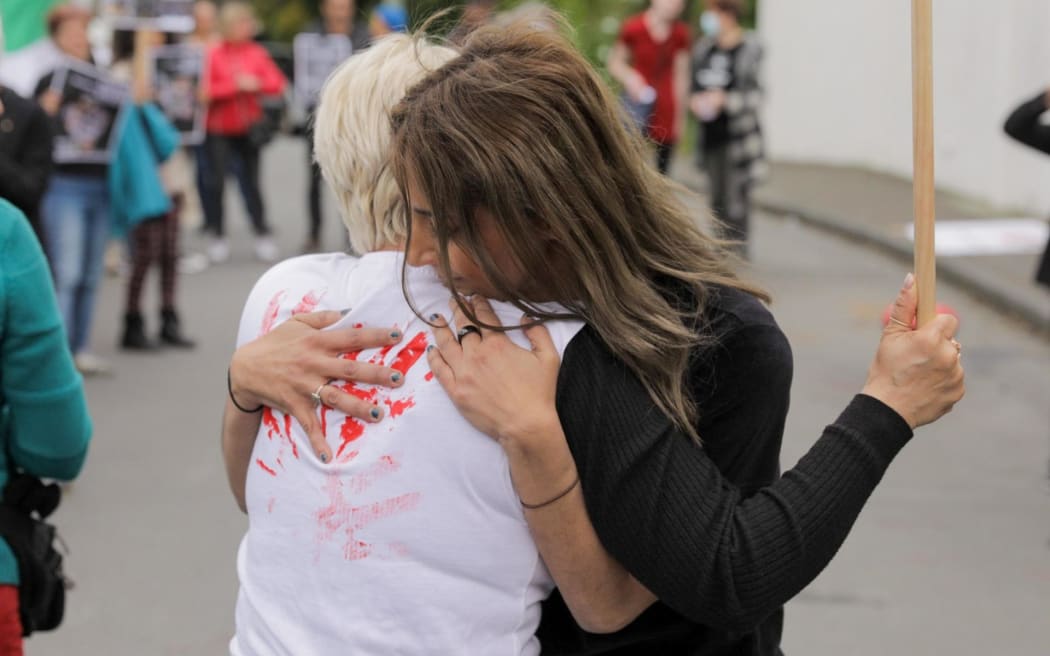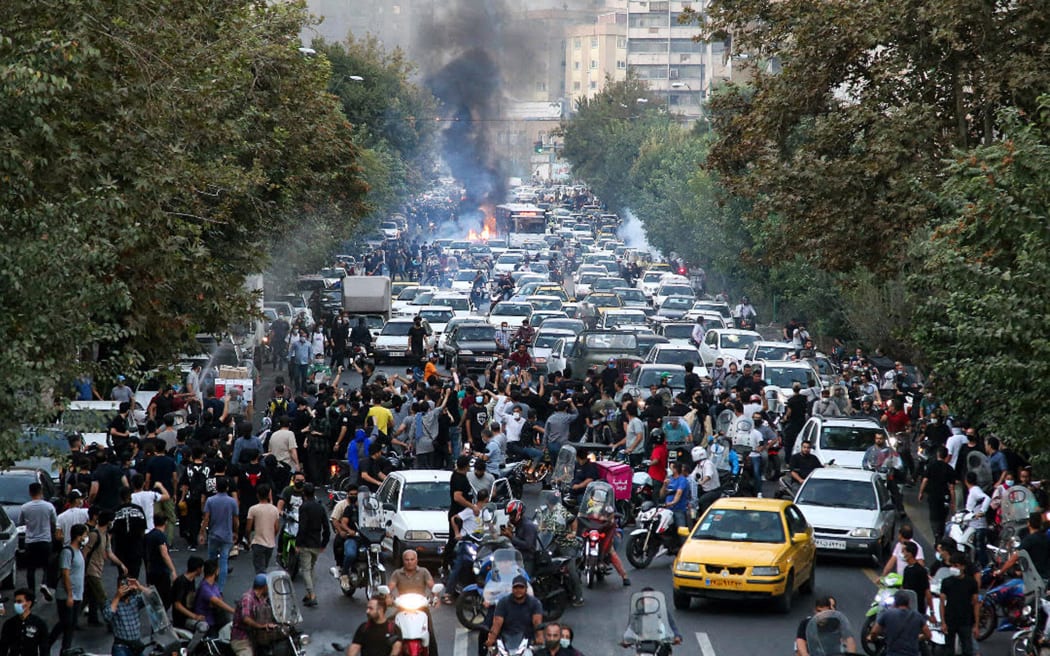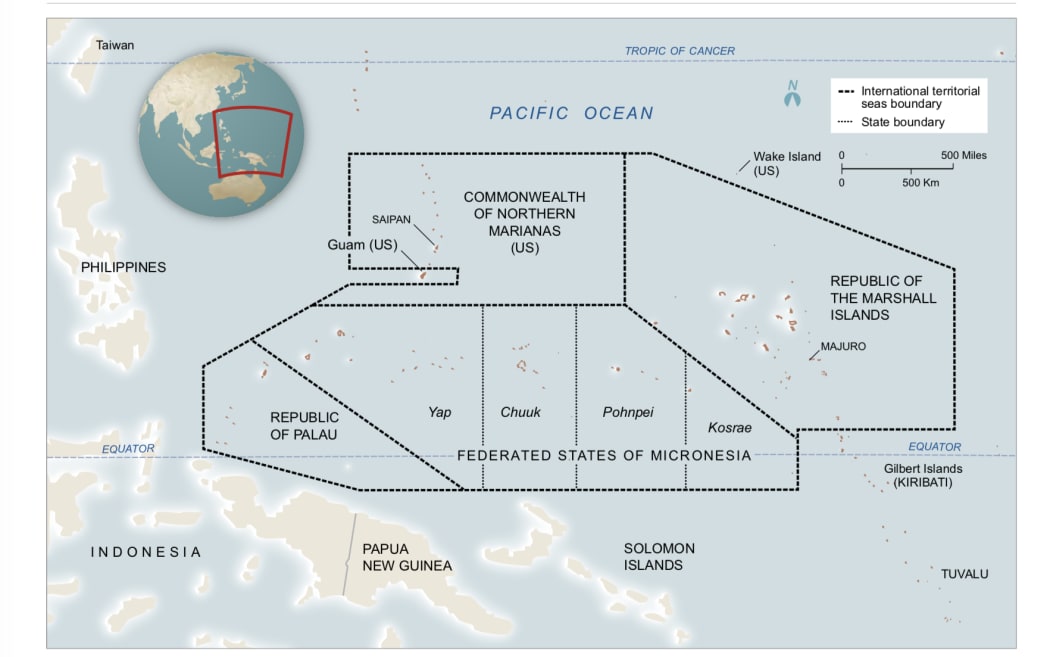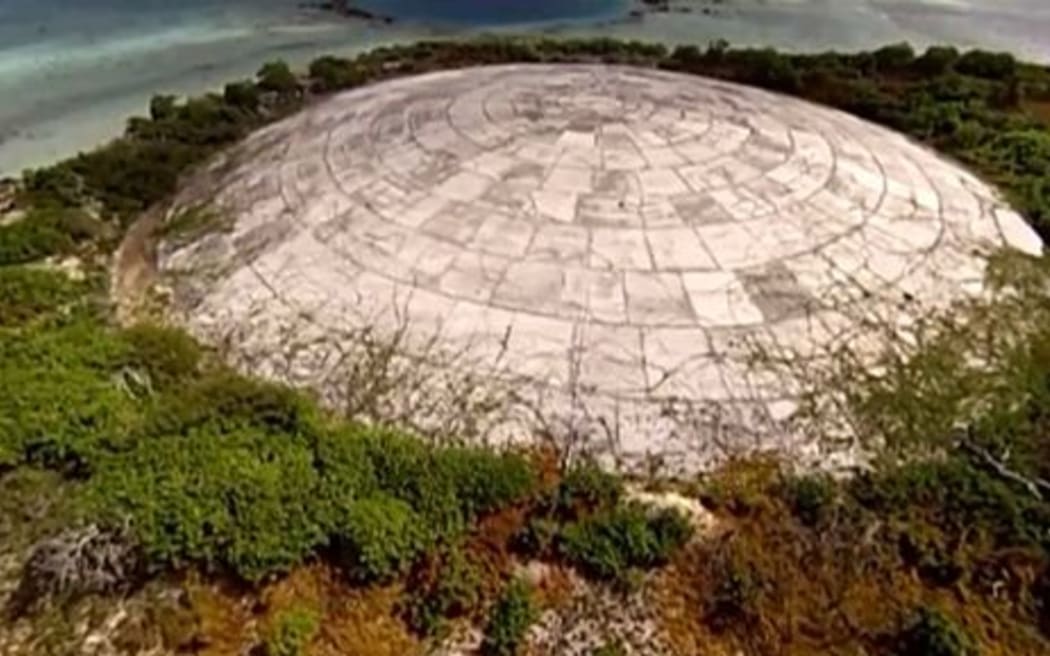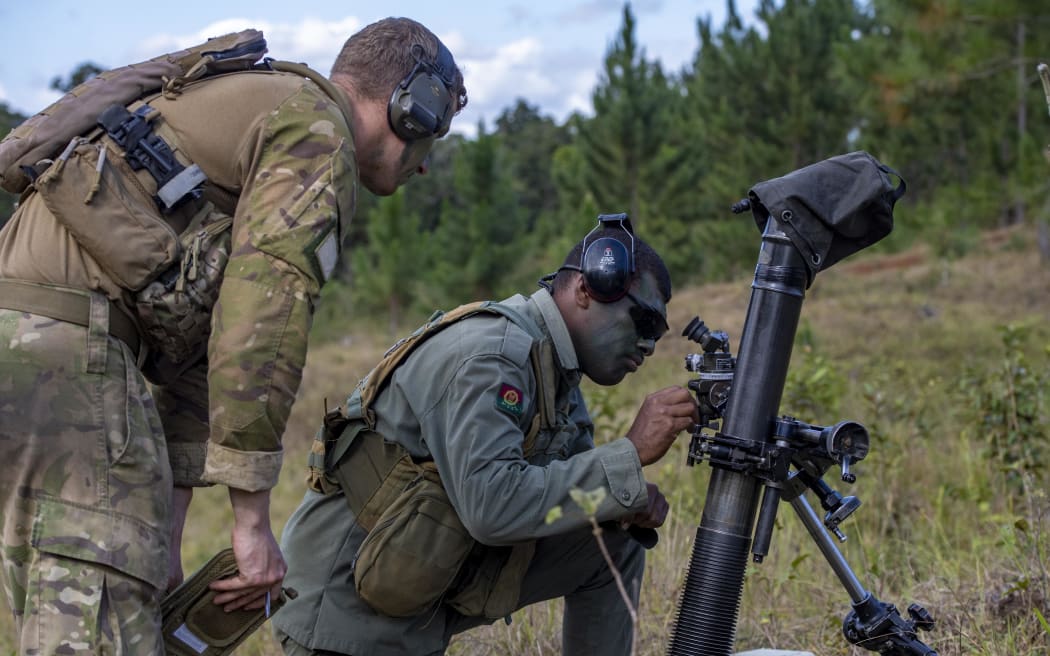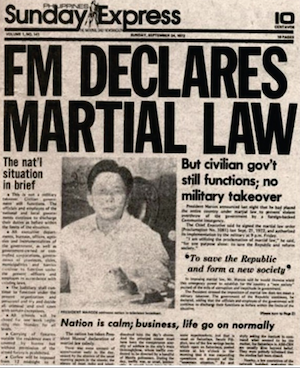OPEN LETTER: The Ōtepoti Declaration by the Indigenous Caucus of the Nuclear Connections Across Oceania Conference
On the 61st anniversary of the first raising of West Papua’s symbol of independence — 1 December 1961 — the Morning Star flag:
We, the Indigenous caucus of the movement for self-determination, decolonisation, nuclear justice, and demilitarisation of the Pacific, call for coordinated action for key campaigns that impact the human rights, sovereignty, wellbeing and prosperity of Pacific peoples across our region.
As guardians of our Wansolwara (Tok Pisin term meaning “One Salt Water,” or “One Ocean, One People”), we are united in seeking the protection, genuine security and vitality for the spiritual, cultural and economic base for our lives, and we will defend it at all costs. We affirm the kōrero of the late Father Walter Lini, “No one is free, until everyone is free!”
- LISTEN TO RNZ MORNING REPORT: Activists, academics fight plans to put nuclear waste in Pacific Ocean
We thank the mana whenua of Ōtepoti, Te Ao o Rongomaraeroa, the National Centre for Peace and Conflict and Kā Rakahau o Te Ao Tūroa Centre for Sustainability at the University of Otago for their hospitality in welcoming us as their Pacific whānau to their unceded and sovereign lands of Aotearoa.
We acknowledge the genealogy of resistance we share with community activists who laid the mat in our shared struggles in the 1970s and 1980s. Our gathering comes 40 years after the first Te Hui Oranga o Te Moana Nui a Kiwa, hosted by the Pacific Peoples Anti Nuclear Action Committee (PPANAC) at Tātai Hono in Tamaki Makaurau.
Self-determination and decolonisation
We remain steadfast in our continuing solidarity with our sisters and brothers in West Papua, who are surviving from and resisting against the Indonesian genocidal regime, injustice and oppression. We bear witness for millions of West Papuans murdered by this brutal occupation. We will not be silent until the right to self-determination of West Papua is fully achieved.
We urge our Forum leaders to follow through with Indonesia to finalise the visit from the UN Commissioner for Human Rights to West Papua, as agreed in the Leaders Communiqué 2019 resolution.
We are united in reaffirming the inalienable right of all Indigenous peoples to self-determination and demand the sovereignty of West Papua, Kanaky, Mā’ohi Nui, Bougainville, Hawai’i, Guåhan, the Northern Mariana Islands, Rapa Nui, Aotearoa, and First Nations of the lands now called Australia.
Of priority, we call on the French government to implement the United Nations self-governing protocols in Mā’ohi Nui and Kanaky. We urge France to comply with the resolution set forth on May 17th, 2013 which declared French Polynesia to be a non-self-governing territory, and the successive resolutions from 2013 to 2022. The “empty seat policy” that the administering power has been practising since 2013 and attempts to remove Mā’ohi Nui from the list of countries to be decolonised have to stop. We call on France to immediately resume its participation in the work of the C-24 and the 4th Commission of the United Nations.
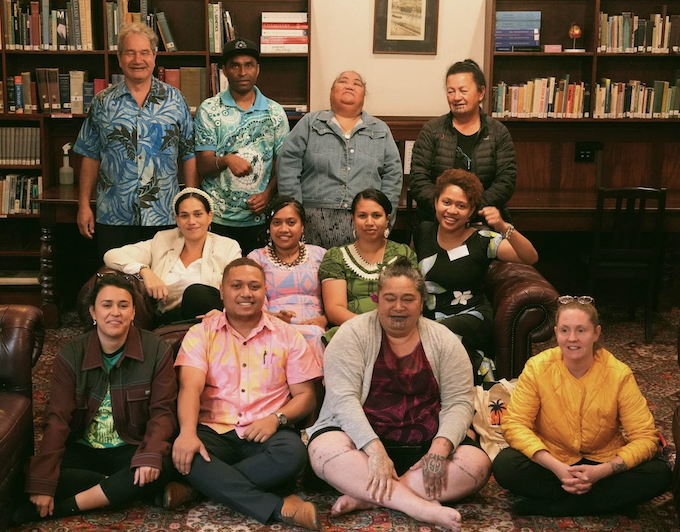
Nuclear justice
We grieve for the survivors and victims who lost their lives to the nuclear violence caused by over 315 nuclear weapons detonated in Marshall Islands, Australia, Kiribati, Johnston Atoll and Mā’ohi Nui by the United States, United Kingdom/Australia and France. The legacy and ongoing nuclear violence in our region is unfinished business and calls for recognition, reconciliation and reparations to be made by nuclear colonisers are long overdue.
We call for the United States, United Kingdom/Australia and France to deliver fair and just
compensation to Indigenous civilians, workers and servicemen for the health and environmental harms, including intergenerational trauma caused by nuclear testing programs (and subsequent illegal medical experiments in the Marshall Islands). The compensation schemes currently in place in all states constitute a grave political failure of these aforementioned nuclear testing states and serve to deceive the world that they are recognising their responsibility to address the nuclear legacy. We call for the United States, United Kingdom/Australia, and France to establish or otherwise significantly improve
accessible healthcare systems and develop and fund cancer facilities within the Marshall Islands, Kiribati/Australia and Mā’ohi Nui respectively, where alarming rates of cancers, birth defects and other related diseases continue to claim lives and cause socio-economic distress to those affected. The descendants of the thousands of dead and the thousands of sick are still waiting for real justice to be put in place with the supervision of the international community.
We demand that the French government take full responsibility for the racist genocidal health effects of nuclear testing on generations of Mā’ohi and provide full transparency, rapid assessment and urgent action for nuclear contamination risks. While the President of France boasts on the international stage of his major environmental and ecological transition projects, in the territory of Mā’ohi Nui, the French government’s instructions are to definitively “turn the page of nuclear history.” This is a white-washing and colonial gas-lighting attitude towards the citizens and now the mokopuna of Mā’ohi Nui. It is
imperative for France to produce the long-awaited report on the environmental, economic and sanitary consequences of its 193 nuclear tests conducted between 1966 and 1996.
We proclaim our commitment to the abolition of nuclear weapons and call all states of the Pacific region who have not done so to sign and ratify the Treaty on the Prohibition of Nuclear Weapons (TPNW), namely Australia, the Solomon Islands, Tonga, Papua New Guinea, the Federated States of Micronesia and the Marshall Islands. We urge Pacific nations along with the world’s governments to contribute to the international trust fund for victims of nuclear weapons implemented by the TPNW. We urge Aotearoa/New Zealand and other states who have ratified the TPNW to follow through on their commitment to nuclear survivors, and to create a world free from the threat and harm of nuclear weapons through the universalisation of the TPNW. There can be no peace without justice.
We oppose the despicable proposal of Japan and the Tokyo Electric Power Company (TEPCO) to dump 1.3 million tonnes of radioactive wastewater next year in 2023, and support in solidarity with the citizens of Japan, East Asian states and Micronesian states who sit on the frontlines of this crisis. This is an act of trans-boundary harm upon the Pacific. We call on the New Zealand government and others to stay true to its commitment to a Nuclear Free Pacific and bring a case under the international tribunal for the Law of the Sea against the proposed radioactive release from TEPCO’s Fukushima Daiichi planned from 2023 to 2053.
Demilitarisation
We condemn the geopolitical order forced upon our nations by imperial powers, who claim to be our friends, yet treat our islands as collateral damage and use financial blackmail to bully us into submission. We demand that the United States remove and remediate all military bases, infrastructure, debris and nuclear and chemical waste from the Pacific. Of priority is the US-owned nuclear waste storage site of Runit Dome on Enewetak Atoll which threatens nuclear contamination of the ocean and marine-life, on which our lives depend. Furthermore, we call for all remaining American UXOs (unexploded ordnances) from World War II in the Solomon Islands, which cause the preventable deaths of more than 20 people every year to be removed immediately!
We support in solidarity with Kānaka Maoli and demand the immediate end to the biennial RIMPAC (Rim of the Pacific) exercises hosted in Honolulu, Hawai’i. We urge all the present participating militaries of RIMPAC to withdraw their participation in the desecration and plunder of Indigenous lands and seas. We support in solidarity with the Marianas and demand an end to munitions testing in the Northern Marianas and the development of new military bases. We rebuke the AUKUS trilateral military pact and the militarisation of unceded Aboriginal lands of the northern arc of Australia and are outraged at Australia’s plans to permit further military bases, six nuclear-capable B52s and eight nuclear-powered submarines to use our Pacific Ocean as a military playground and nuclear highway.
We call on all those committed to ending militarism in the Pacific to gather and organise in Hawai’i between 6-16 June 2024, during the Festival of the Pacific and bring these issues to the forefront to renew our regional solidarity and form a new coalition to build power to oppose all forms of military exercises (RIMPAC also returns in July -August 2024) and instead promote the genuine security of clean water, safe housing, healthcare and generative economies, rather than those of extraction and perpetual readiness for war.
We view colonial powers and their militaries to be the biggest contributors to the climate crisis, the continued extractive mining of our lands and seabeds and the exploitation of our resources. These exacerbate and are exacerbated by unjust structures of colonialism, militarism and geopolitical abuse. This environmental destruction shifts the costs to Pacific and Indigenous communities who are responsible for less than 1 percent of global climate emissions.
As Pacific peoples deeply familiar with the destruction of nuclear imperialism, we strongly disapprove of the new propaganda of nuclear industry lobbyists, attempting to sell nuclear power as the best solution for climate change. Similarly, we oppose the Deep Sea Mining (DSM) industry lobbyists that promote DSM as necessary for green technologies. We call for a Fossil Fuel Non-proliferation Treaty to be implemented by the United Nations Framework Convention on Climate Change and for safe and equitable transition to better energy solutions. We reject any military solution for the climate crisis!
We recognise the urgent need for a regional coordinator to be instituted to strategise collective grassroots movements for self-determination, decolonisation, nuclear justice and demilitarisation.
Our existence is our resistance.
We, the guardians of our Wansolwara, are determined to carry on the legacy and vision for a Nuclear Free and Independent Pacific.
This post was originally published on Asia Pacific Report.
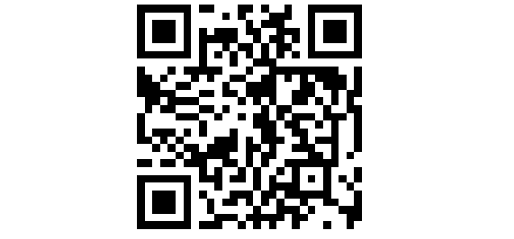


 (@ChattJazz)
(@ChattJazz) 
